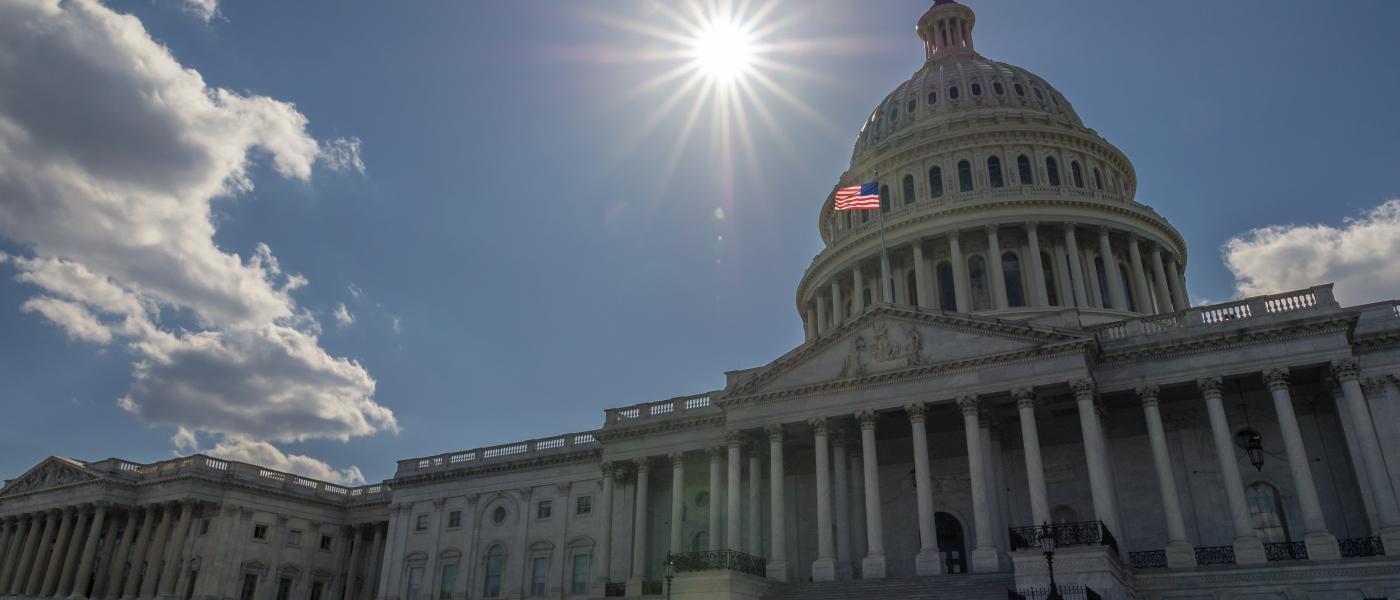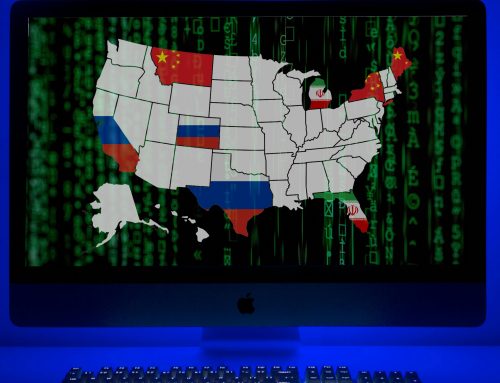Special Counsel Robert Mueller’s February 16 indictment1 of the Internet Research Agency, along with 13 key individuals and two related entities, was another reminder for Americans of the coordinated attack mounted on our country’s democracy. In addition to the use of information operations outlined in the indictment, the U.S. intelligence community has documented Russia’s use of hacks on campaign related entities,2 with stolen information weaponized and released via Wikileaks and other outlets, and the Department of Homeland Security (DHS) has confirmed that at least 21 states had parts of their electoral infrastructure probed in the run-up to the 2016 presidential election.3 The Internet Research Agency purchased political advertisements and sponsored organic content on social media platforms aimed at amplifying socially divisive issues. This content reached over a hundred million Americans,4 and the trend of exacerbating social divisions has continued on Twitter, in particular, over the past year and a half. Meanwhile, Russia and China are investing in advanced technology companies in the United States, acquiring both technical know-how and vast amounts of data that could facilitate the targeting of Americans.5
Director of National Intelligence Coats recently testified, “There should be no doubt that Russia perceives its past efforts as successful and views the 2018 midterm elections as a potential target for Russian influence operations.”6 And other governments like China are learning lessons from Russia’s success. Americans were caught off guard by Russia’s actions, but now that we know the breadth and scope of their malign influence operations, we must plug vulnerabilities that Russia and other foreign actors will continue to exploit if we are to defend our democracy against foreign interference.
Yet, more than a year after the 2016 presidential election, and with midterm elections looming on the horizon, Congress and the Trump administration have not taken any clear action to increase U.S. defenses against the foreign interference threat. Many Americans remain unwilling to even admit that this interference occurred and many members of Congress have decided to use this issue for partisan attacks instead of uniting to secure our democracy. There are important steps we can, and must, take to defend our institutions against adversaries who seek to undermine them. Many of Russia’s tactics have exploited vulnerabilities in our societies and technologies, and loopholes in our laws. Some of the steps necessary to defend ourselves will involve long-term work to reduce polarization. Others will require clear action by the Executive Branch — including strategic messaging to ensure Americans are united against the threat we face, and steps to both deter and raise the costs on such actions.
Congress does not have to wait for action by the Trump administration. Many of these steps are ones that Congress has the power to take. And particularly in the face of President Trump’s failure to lead an effort to counter this threat,7 Congress must step up and take steps within its power to patch the holes that congressional investigations and the intelligence and law enforcement communities have revealed.
The good news is a number of legislative steps have already been proposed in both chambers on a bipartisan basis to improve the United States’ ability to defend against and deter these external threats, and there are other measures that could be added to those to close gaps in our defenses. These steps would close loopholes in current law and strengthen our institutional capacity to defend against foreign influence campaigns. We believe these are common sense steps that every member of Congress — on both sides of the aisle — should support.
1) Improve election security NOW. Russian hackers probed voting systems in 21 states before the 2016 presidential election. Although there is no evidence that vote tallies were changed in 2016, hardening the defenses of our electoral process would reduce foreign adversaries’ ability to tamper with votes in future elections and improve Americans’ confidence in the legitimacy of election results. It is, therefore, imperative to enact a number of proposals to make immediate improvements to our disparate systems on the state and local level before the 2018 midterm elections. Congress can do the following:
- Designate election infrastructure as critical infrastructure given its importance to the proper functioning of democracy and national security
- Move urgently to adopt the Secure Elections Act,8 a bipartisan bill introduced by Senators Lankford and Klobuchar that would improve information sharing throughout government on election cybersecurity threats; provide technical resources for election agencies; and improve information sharing between the federal, state, and local levels
- Support improvements to cybersecurity not only to protect electoral infrastructure but other critical infrastructure and information security networks as well. The Senate introduced an amendment to the DHS reauthorization bill that would transform the National Protection and Programs Directorate, the department within DHS that protects federal networks and critical infrastructure from physical and cyber threats, into an operational agency under DHS jurisdiction. The House passed a stand-alone bill to establish the Cybersecurity and Infrastructure Security Agency in December 2017.9
2) Improve disclosure requirements for online political advertisements. In 2016, Russian entities purchased political advertising on social media platforms, even in some cases purchasing those ads in rubles. Americans should have the right to understand who is funding political ads they see online, just as they do for political advertising on radio, print, and television. Political ads on all other media have to disclose their sponsors; increasing transparency of online political advertising is common sense.
- One bill, the Honest Ads Act,10 introduced by Senators Amy Klobuchar and Warner and co-sponsored by Senator John McCain, would create a searchable database of political ads published on large online platforms and require disclosure of who is purchasing advertisements.
3) Create a public-private fund for media literacy. Congress should establish a fund with pooled public and private resources that would establish media literacy education and training throughout the country. Critical thinking skills and citizen discernment are key to building resilience against foreign manipulation of our democratic debates and process. Such a fund could be supported by social media companies as part of their efforts to tackle the impact their products are having on their users.
4) Strengthen beneficial ownership disclosure requirements. Foreign actors often exploit real estate loopholes to move money into the United States that they can then use to gain political influence, perpetuate corruption, and promote transnational organized crime. Beneficial owners are those who enjoy the benefits of owning a property while the asset is actually owned by another entity. Legislation should be adopted that regulates the use of these shell companies and brings transparency to ownership.
- Legislation should mandate that shell companies in the United States be purchased in U.S. dollars, not foreign currency, in order to increase transparency and halt the practice of laundering money through these entities. Additionally, the legislation discussed below would make oversight of real estate transactions conducted in cash more rigorous, closing a significant loophole that allows beneficial owners from abroad to launder money through real estate in the United States.
- Two bipartisan bills have been introduced in Congress that seek to address loopholes in current law on beneficial ownership. The Corporate Transparency Act, H.R. 3089,11 introduced on a bipartisan basis by Representatives Maloney and King, would require states to have federally fixed minimum disclosure requirements for beneficial owners. Companies incorporated without meeting these federal requirements (because states fail to enforce the federal minimum) would have to register with FinCEN (the Financial Crimes Enforcement Network). Senators Wyden and Rubio introduced a bipartisan Senate companion bill, S. 1717.
- Another bipartisan bill in the Senate, the True Incorporation Transparency for Law Enforcement Act,12 would require states to collect beneficial ownership information. The bill ties collection of this information to the disbursement of law enforcement assistance grants.
- Beneficial owners from abroad often launder money through real estate transactions in cash. The deals are not subject to disclosure below a certain threshold depending on the city where the property is located. These disclosure requirements are enforced through Geographic Targeting Orders (GTOs) that have to be renewed every 180 days.13 Congress should make the GTOs permanent, expand the program nationally beyond its selected cities, and expand disclosure requirements to include commercial properties.
5) Reform the Foreign Agents Registration Act (FARA). It has long been apparent that the Department of Justice (DOJ) enforces FARA selectively (the DOJ argues it does not have the resources to enforce it more rigorously) and that it contains major loopholes.14 Russia’s interference efforts and the subsequent indictment of individuals by Special Counsel Robert Mueller for FARA violations only underscore the danger of those loopholes and lax enforcement. Requiring RT and Sputnik to register as foreign agents was an important step for DOJ, and any foreign state-controlled media outlets should also be registered accordingly. But more broadly, Congress must update and modernize FARA, as well as provide sufficient resources for DOJ to implement it. There are several existing proposals to reform the regulations that determine how agents of foreign governments register in the United States, including a bill introduced by Senator Grassley that would mandate foreign companies with U.S. subsidiaries register under FARA15; and a bill introduced by Senators Duckworth, Durbin, and Blumenthal that would strengthen regulation of lobbyists working for foreign entities.16
6) Expand the jurisdiction of the Committee on Foreign Investment in the United States’ (CFIUS). CFIUS, an interagency body responsible for reviewing inbound foreign investment for national security risks, should be permitted to include a broader range of transactions, particularly in critical technology and the media sector, and from countries that pose national security risks, such as Russia and China. If CFIUS was authorized to consider an expanded list of national security factors, including risks from foreign acquisition of sensitive and proprietary data, when reviewing investments from these countries of concern, we could reduce the ability of adversarial governments gaining hold of our strategic industries. A bipartisan bill introduced by Senators Cornyn and Feinstein could be an appropriate first step toward strengthening CFIUS’ ability to review acquisitions, mergers, and other foreign investments in the United States.17
7) Raise the cost of conducting foreign influence operations. One of the most dangerous aspects of the lack of an effective U.S. response to Russia’s interference in 2016 is the failure to create a deterrent effect against Russia or others who attempt to interfere in the future. Congress should pass legislation that imposes sanctions on countries that interfere in the United States’ democratic institutions and processes. Not only should there be consequences for foreign interference, but the threat of sanctions could serve as deterrence for states considering conducting such operations. The DETER Act, introduced by Senators Rubio and Van Hollen January 16 would impose sanctions on Russia if the Director of National Intelligence determines the Kremlin interferes in a future U.S. election, and prohibit the purchase of Russian sovereign debt by U.S. citizens and entities, plugging a significant loophole Russia could use to evade sanctions.18 While a Sense of Congress section in the bill requests the Executive Branch submit a report to Congress on meddling by other countries, including China, Iran, North Korea, and other governments of concern, Congress could go even further and mandate sanctions on any state that interferes in U.S. democracy, not just Russia.
8) Increase U.S. foreign assistance to European and Eurasian states. Many of the tools that were deployed by Russia in 2016 against the United States were first used and refined against our allies in partners in Europe. Congress should invest in building democratic resilience throughout the region by increasing foreign assistance that supports civil society initiatives, including investments in media literacy programs, as outlined in Countering America’s Adversaries Through Sanctions Act (CAATSA). This would increase societal resistance to the Kremlin’s tactics, such as its support for political and social groups and its use of disinformation to exacerbate existing social divisions. While Congress expressed its support for this type of programming when it passed CAATSA, which authorized $250 million over two years to support democratic resilience in vulnerable countries, the monies still need to be appropriated and implemented by the administration.
9) Establish an interagency task force to defend against and respond to malign influence operations more effectively. The U.S. government was slow to recognize the attack that was underway against our democracy in 2016 and the response was delayed further by debates within the Obama administration and between the Executive Branch and Congress about how to respond. Breaking down agency stovepipes and bringing together a diverse array of policy and intelligence expertise across the U.S. government under one roof will be the best way to deter adversaries’ active measures campaigns. Congress should designate a lead agency to deal with this challenge and urge the president to appoint a top White House official to oversee elements of the interagency tackling this problem. Rules of the road could also be outlined for congressional notification during an attack and the circumstances in which the public should be notified by the intelligence community and law enforcement about an attack against a campaign. More broadly, Congress might consider mandating a National Intelligence Estimate on the various forms of foreign interference in democratic countries, including the United States.
10) Conduct rigorous bipartisan oversight of the Executive Branch. Congress should hold the Executive Branch accountable to ensure all relevant government agencies are implementing policies that would achieve the objective of defending our democracy. Congress should:
- Work with DHS to ensure that all states requiring assistance to improve and secure their voting infrastructure, including through the allocation of additional resources and expertise, receive it ahead of the 2018 midterm elections.
- Encourage reform of the Federal Election Commission (FEC) that would lead to vigorous enforcement of campaign finance rules. Encourage the FEC to ensure a strict set of rules that ensure proper protections against foreign influence.
- Urge government to work with social media companies to provide early warning information to companies and encourage them to share data with researchers and establish industry-wide standards to ensure consistent implementation of election norms; Congress can also hold social media companies to a higher degree of transparency by continuing to hold open hearings on their platforms and business models and require them to release data regarding the exploitation of their platforms by foreign actors.
- Encourage the administration to work with our European partners and allies to implement energy reforms outlined in the third energy package throughout the EU that would lessen Europe’s energy dependence on Russia, including building interconnectors and halting the construction of Nord Stream 2; and to work with the EU and at NATO to detect and deter malign foreign interference operations that destabilize elections and other democratic institutions and processes across the transatlantic community.
- Perform rigorous oversight of CAATSA, which would include the imposition of sanctions against individuals and entities inside Russia who use ill-gotten gains to fund influence operations abroad. Sanctions should target key networks, including all individuals and entities coordinating and engaging in this activity.
- Ensure the Assistance for Europe, Eurasia, and Central Asia account is directed at initiatives to strengthen civil society, media literacy, and organizations throughout the region that play an offensive role in exposing and countering this type of activity.
Members of Congress should, as much as possible, work in a bipartisan manner to take these actions and to carry out their oversight responsibilities. Members of both parties, speaking with one voice, can help inform the American public of the danger of foreign interference. Those who succumb to the temptation to use the foreign interference issue as a partisan cudgel are only creating more vulnerabilities for foreign exploitation, and ultimately making our democracy less secure.
- https://www.justice.gov/file/1035477/download.
- Natasha Bertrand, “Jailed Russian Hacker: I Hacked Democrats ‘Under the Command’ of Russian Intelligence Agents,” Business Insider, December 11, 2017.
- Cynthia McFadden, William M. Arkin and Kevin Monahan, “Russians Penetrated U.S. Voter Systems, Top U.S. Official Says,” NBC News, February 8, 2018.
- David Meyer, “Facebook, Twitter and Google Reveal How Many People Saw Russia- Linked Posts,” Fortune, October 31, 2017.
- Tim Johnson, “Seeking to Outsmart US, China Races Ahead on Artificial Intelligence,” McClatchy, February 21, 2018.
- Ellen Nakashima and Shane Harris, “The Nation’s Top Spies Said Russia is Continuing to Target the U.S. Political System,” The Washington Post, February 13, 2018.
- Peter Baker, “Trump’s Conspicuous Silence Leaves a Struggle Against Russia Without a Leader,” The New York Times, February 17, 2018.
- https://www.congress.gov/115/bills/s2261/BILLS-115s2261is.pdf.
- https://www.congress.gov/bill/115th-congress/house-bill/3359/text?q=%7B%22search%22%3A%5B%22h.r.+3359%22%5D%7D&r=1
- https://www.congress.gov/bill/115th-congress/senate-bill/1989.
- https://maloney.house.gov/sites/maloney.house.gov/files/Corporate%20 Transparency%20Act%202017.pdf
- https://www.congress.gov/bill/115th-congress/senate-bill/1454.
- Kevin G. Hall, “Why Isn’t Treasury’s crackdown on Real Estate Money permanent?” The News & Observer, August 22, 2017.
- https://www.perkinscoie.com/en/news-insights/proposed-legislation-boosts… of-foreign-agents.html.
- https://www.judiciary.senate.gov/imo/media/doc/FARA,%2010-31-17,%20 Disclosing%20Foreign%20Influence%20Act%20-%20Legislative%20Text.pdf.
- https://www.congress.gov/bill/115th-congress/senate-bill/1679.
- https://www.congress.gov/bill/115th-congress/senate-bill/2098.
- https://www.congress.gov/bill/115th-congress/senate-bill/2313/text#toc-i… A98C33F349918DFFD5D33AEAC8AD.






